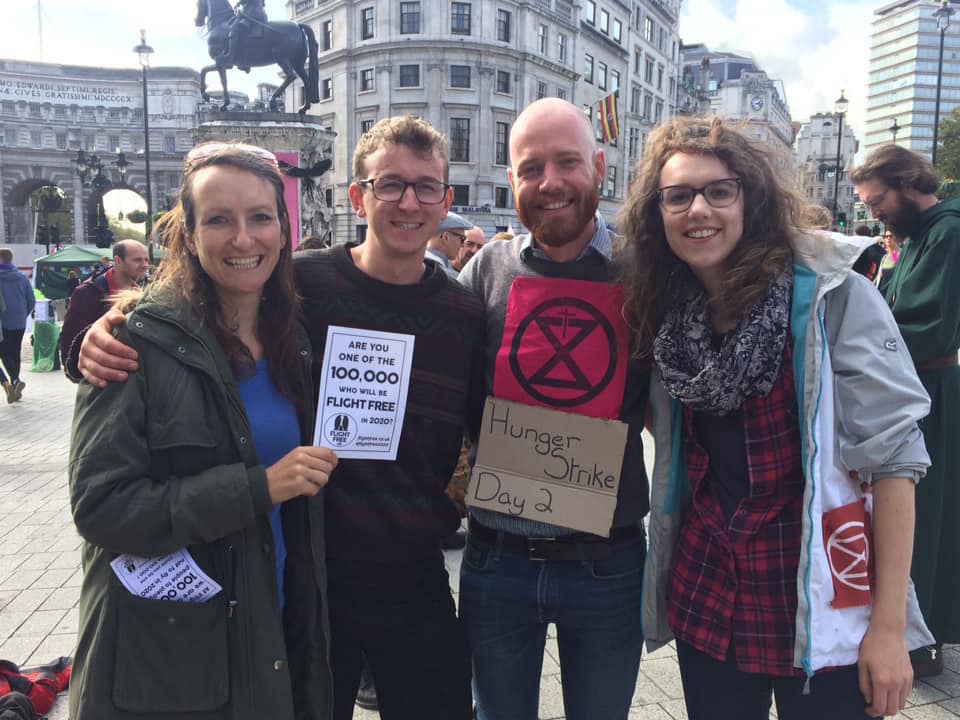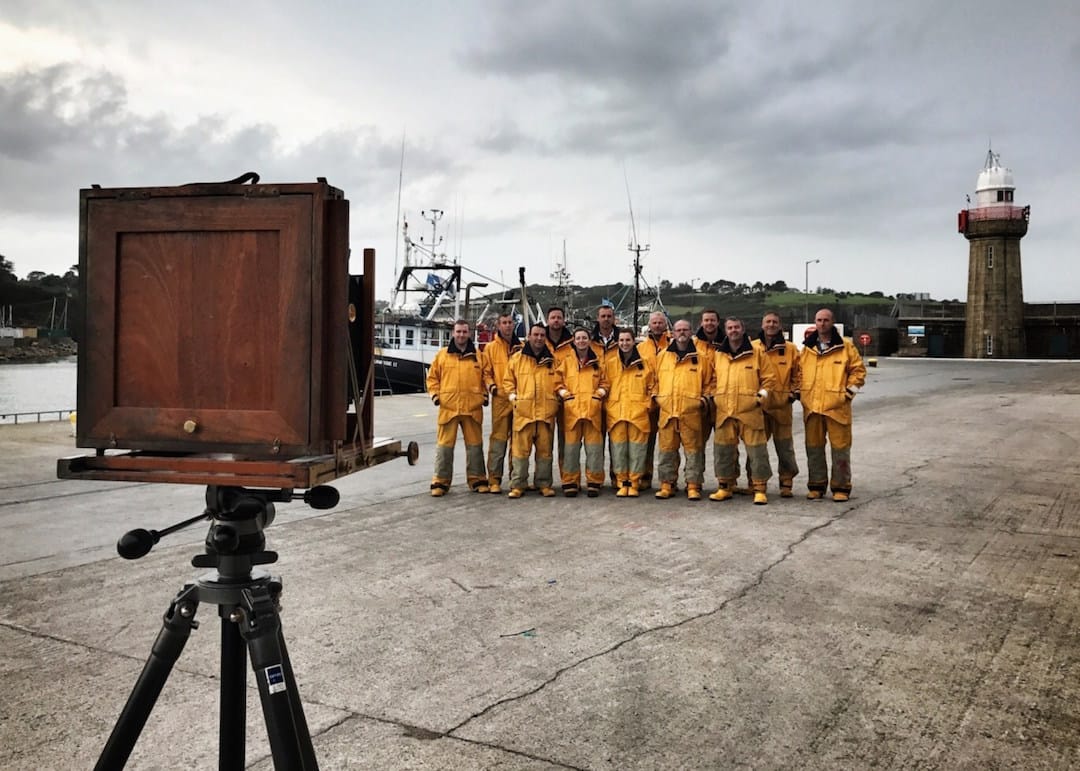
I’d never really flown much.
A handful of holidays with my family. I hadn’t flown for about nine years before I took some time off to travel around East Asia and Australasia where I learnt that I loved mountain trekking, scuba diving and experiencing other cultures.
I came back to a new job. After much anticipation, I got to go to our Poland office in Katowice for a two-day ‘Product All Hands’ meeting. This seemed like such a great perk – I love travelling! Some other people from other parts of Eastern Europe had never flown before in their life. I got my flight booked the weekend before and took the opportunity to visit Krakow and the amazing yet harrowing Auschwitz.
The following weekend work put me on another flight, this time to Taiwan for a four-day conference in Taipei where we tested our product. Again, I took the opportunity to see an exciting new city. Work put me up in by far the fanciest hotel I’ve ever set foot in. I enjoyed some wonderful restaurants, the hotel spa and generally living the high life. I even stayed for an extra week (in hostels not hotels) so I could experience more of Taiwan, scuba diving off an island off the east coast and trekking in the mountains. It was an absolute dream!
A few months after these trips I stumbled upon a ‘Heading For Extinction’ talk put on by Extinction Rebellion. I was completely taken back. I’d always thought I’d been ‘doing my bit’, reducing my plastic waste, not owning a car, and going vegan, but the problem was a couple of orders of magnitude worse than I’d thought. The level of injustice was heartbreaking.
"I’d always thought I’d been ‘doing my bit’, but the problem was much worse than I’d thought."
I did WWF’s footprint calculator and Global Footprint Network’s footprint calculator and I realised that those two work flights I’d taken that year made up more than half of my carbon footprint!
I could easily have said, “Oh well, those flights were offset by work so it’s fine.”
But I think carbon offsetting is basically used as a coverup for us folk in rich countries to quell the guilt we feel about the devastation we’re causing. I think we shouldn’t be using our privilege to have fun at the expense of the health, livelihoods, homes and lives of others. We should be using our privilege to create system change for those without such privilege, and those in future generations that don’t even have a life yet, let alone a voice. Carbon offsetting doesn’t change the system, and it takes years to actually offset, while the devastation is already happening now.
I could (like other colleagues) have said, "It's for work, so it doesn't count. I have to do it," as if making our company's product is more important than a hospitable planet. I couldn't imagine trying to explain that to my children in 20 years time. My conscience wouldn't allow me to make such excuses. This was one of my opportunities to live in the reality of the truth and be the system change.
"I couldn't imagine trying to explain still flying to my children in 20 years time. My conscience wouldn't allow me to make such excuses."
As a Christian, I aim to love my neighbour as myself. This means in all my decisions, I can’t choose an option that puts others in harm's way, when an option not to, or an option that is less harmful, is available. If I am choosing to do something that is directly contributing to the climate emergency, like flying, and therefore making life very difficult for millions of people around the world, when I could simply not fly, I am not being a true disciple.
A couple of months later I told my team at work that I wouldn’t be flying again.
This wasn’t much of a surprise as I’d given a talk to about half the company the month before about the global climate catastrophe (basically the first half of a ‘Heading For Extinction’ talk).
I said, "Oh, heads up, for reasons obvious from the talk I gave the other day, I'm no longer flying. I realise that'll cause problems and I realise that my contract says that I need to be willing to travel but I'm no longer going to fly. I'm happy for it to be taken as high as it needs to be, but I'm more comfortable quitting than I am flying. I'm sorry for the annoyance and the problems that'll cause, but I don't think we should, so I'm not."
"I'm more comfortable quitting my job than I am flying."
It was a bit awkward. I had rehearsed what I wanted to say in my head countless times. The reasons for not flying are obvious from a justice and planetary perspective, but because flying is so cheap, it’s the obvious choice for a business. Quick fixes like carbon offsets or swapping to recycled printer paper are the things businesses look for, decisions someone else can make that doesn’t get in the way of making money, but can make the company look like it’s doing something good.
A few months later my team’s facilitator was organising the team flight out to Romania to visit the contractors that we were working with. I realised that I would be expected to go, even though I’d said I wouldn’t be flying any more. When I reiterated this, my team facilitator said, “I thought that was only outside of work. I thought you might be able to make an exception as, you know, it’s work.” I politely refused, saying that whether I fly for work or for pleasure, it’s still other people’s lives at stake. I don’t like disappointing people, and although the conversation made me nervous before and rattled through my head for a while after, I was confident I’d done the right thing.
Before lockdown, the whole team was flying out to Romania (~1000 miles away) every other month. These whole-day meetings are good for team building and easier conversation, but that’s not at all worth it in my books. Each meeting has a carbon footprint larger than my entire year.
To my mind, my choice is a form of nonviolent direct action that many of us can take to change our culture away from our fossil fuel addiction.
The more people that also take this stance, wherever they possibly can, the more our culture and infrastructure will have to adapt to accommodate us. We've already seen this start to happen with the rise of vegan options and vegan restaurants. It’s basic economics: if we want to change the supply we need to change the demand.
"The more people that also take this stance, the more our culture and infrastructure will have to adapt to accommodate us."
In the end, my company has been very accommodating. After a couple of awkward conversations with my team facilitator, I was not pressured again into flying for any reason. About eight months on my CEO actually changed company policy, not to allow groups larger than five to fly out anywhere, giving the climate emergency as a reason. I was astounded! I got to talk with him and support his decision.
Since Covid hit, flying has stopped except for a few executives. So the company has been forced to invest in infrastructure to make working from home and international conference calls work well. Now we only need more people saying a hard no to flying. That will start the social change needed for us to stay with the green new normal.
In general, people tend to avoid talking about the climate. They will often quickly change the topic about anything that involves personal change. I could easily have gone along with the crowd and continued to fly for work. And while I know it takes a lot more than personal change, I will live to my values, while also calling for corporate change. This was my small act of rebellion against a selfish and immoral business culture. We can all make our personal demands.
God bless you with powerful positive impact in whatever actions you're doing, and with joy in the local wonders of this planet.
Eddie, Christian Climate Action.
(thoughts and opinions are my own, thank you Anna for editing my ramblings)




